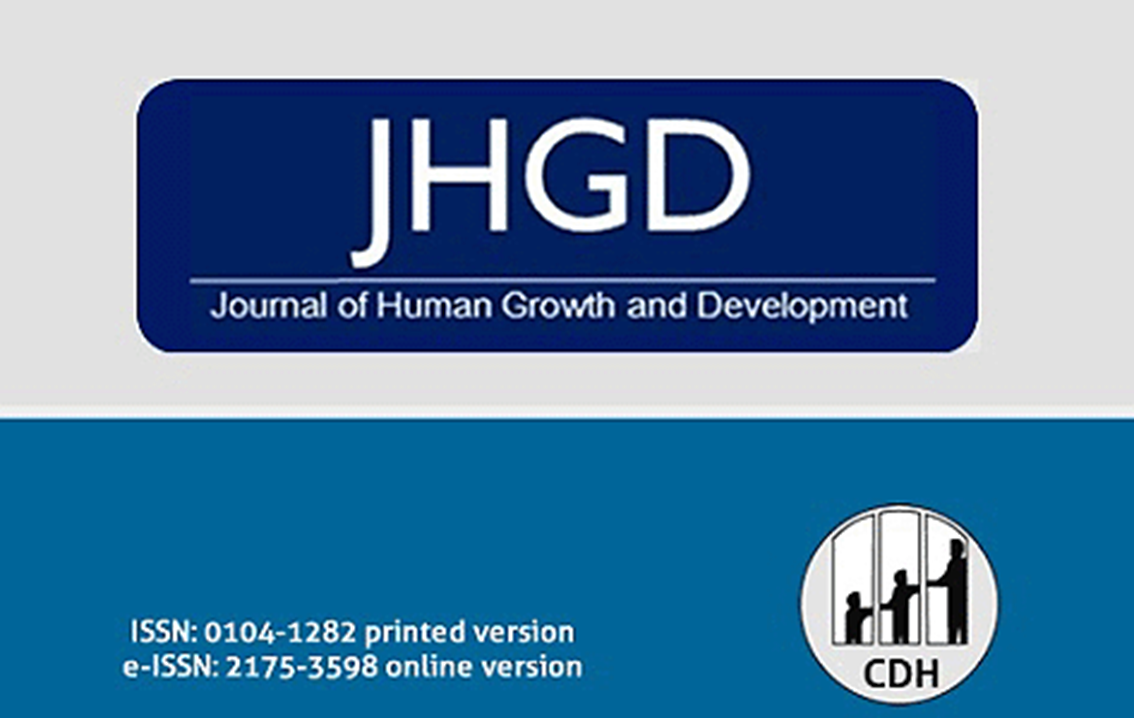The effects of mindfulness-based interventions in COVID-19 times: a systematic review
DOI:
https://doi.org/10.36311/jhgd.v32.13313Keywords:
mindfulness, coronavirus infections, systematic reviewAbstract
Introduction: the public health crisis caused by COVID-19, a disease caused by SARS-CoV-2, has imposed physical threats and psychological suffering on both infected patients and individuals who experience social isolation and various governmental restrictions, leading to the appearance of symptoms like anxiety, depression, as well as insomnia, stress, and changes in biological rhythm. In face of this stressful scenario, interventions based on mindfulness (MBIs) have proved to be potentially adequate tools in reducing psychological suffering and generating well-being in the general population.
Objective: to describe the effects of mindfulness-based interventions during the COVID-19 pandemic.
Methods: A systematic literature review was conducted on the effects of mindfulness intervention in times of COVID-19. The articles were searched in four databases (Pubmed, Embase, Scopus, and Science direct) and the PRISMA protocol was used to conduct this review. In total, fourteen articles were included in the study.
Results: the use of mindfulness techniques in the population with impaired mental health because of the COVID-19 pandemic proved to be beneficial, with improvement in emotional stress scores and reduction in anxiety symptoms, through formal mindfulness meditation practices such as mindful breathing, body scanning, and application of the mindfulness-based stress reduction strategy (MBSR). Strategies were also applied through smartphone applications that had the objective of promoting the increase of mindfulness and the development of the acceptance without judgment of the traumatic experiences already lived, in addition to an integrated intervention on the internet with the use of mindfulness, the training of respiratory relaxation, refuge skills and Butterfly Hug Method.
Conclusion: with the pandemic going through, still with high mortality, continuity of social isolation, and, consequently, intensification of psychic suffering in the population and health professionals, interventions based on mindfulness (MBIs) are being effective to reduce this suffering, prevent the appearance of of chronic mental disorders and promote positive impacts on physical and mental well-being.
Downloads
References
Wielgus B, Urban W, Patriak A, Cichocki Ł. Examining the Associations between Psychological Flexibility, Mindfulness, Psychosomatic Functioning, and Anxiety during the COVID-19 Pandemic: A Path Analysis. IJERPH 2020; 17: 8764. https://doi.org/10.3390/ijerph17238764
Jiménez Ó, Sánchez-Sánchez LC, García-Montes JM. Psychological Impact of COVID-19 Confinement and Its Relationship with Meditation. IJERPH 2020; 17: 6642. https://doi.org/10.3390/ijerph17186642
Brazil Country Overview | World Health Organization n.d. https://www.who.int/countries/kaz (accessed March 27, 2022)
Wei N, Huang B, Lu S, Hu J, Zhou X, Hu C, et al. Efficacy of internet-based integrated intervention on depression and anxiety symptoms in patients with COVID-19. J Zhejiang Univ Sci B 2020; 21: 400–4. https://doi.org/10.1631/jzus.B2010013
Matiz A, Fabbro F, Paschetto A, Cantone D, Paolone AR, Crescentini C. Positive Impact of Mindfulness Meditation on Mental Health of Female Teachers during the COVID-19 Outbreak in Italy. IJERPH 2020; 17: 6450. https://doi.org/10.3390/ijerph17186450
Baiano C, Zappullo I, the LabNPEE Group the LabNPEE Group, Conson M. Tendency to Worry and Fear of Mental Health during Italy’s COVID-19 Lockdown. IJERPH 2020; 17: 5928. https://doi.org/10.3390/ijerph17165928
Yuan Y. Mindfulness training on the resilience of adolescents under the COVID-19 epidemic: A latent growth curve analysis. Personality and Individual Differences 2021; 172: 110560. https://doi.org/10.1016/j.paid.2020.110560
Moreira Aguiar M, Nascimento dos Santos Barros M, Macedo A, Rosselli Puccia MI, Telma Pereira A. Covid-19 fear scale – translation and validation into brazilian portuguese. Jhgd 2021; 31: 376–86. https://doi.org/10.36311/jhgd.v31.12604
Roberto Teixeira Ferreira C, Naildo Cardoso Leitão F, Bianca Barbary de Deus M, Maria Pinheiro Bezerra I, Rosas Barbary de Deus R, José de Deus Morais M. Sleep quality during home distancing in the COVID-19 pandemic in the Western Amazon. Jhgd 2021; 31: 458–64. https://doi.org/10.36311/jhgd.v31.12606
Sweeny K, Rankin K, Cheng X, Hou L, Long F, Meng Y, et al. Flow in the time of COVID-19: Findings from China. PLoS ONE 2020; 15: e0242043. https://doi.org/10.1371/journal.pone.0242043
Malboeuf-Hurtubise C, Léger-Goodes T, Mageau GA, Joussemet M, Herba C, Chadi N, et al. Philosophy for children and mindfulness during COVID-19: Results from a randomized cluster trial and impact on mental health in elementary school students. Progress in Neuro-Psychopharmacology and Biological Psychiatry 2021; 107: 110260. https://doi.org/10.1016/j.pnpbp.2021.110260
Conversano C, Di Giuseppe M, Miccoli M, Ciacchini R, Gemignani A, Orrù G. Mindfulness, Age and Gender as Protective Factors Against Psychological Distress During COVID-19 Pandemic. Front Psychol 2020; 11: 1900. https://doi.org/10.3389/fpsyg.2020.01900
Liu Y, Luo S-X, Ye J-L, Chen Y-Z, Li J-F, Li Y-X. The use of online MBSR audio in medical staff during the COVID-19 in China. European Review for Medical and Pharmacological Sciences 2020; 24: 10874–8. https://doi.org/10.26355/eurrev_202010_23451
Strauss C, Gu J, Montero-Marin J, Whittington A, Chapman C, Kuyken W. Reducing stress and promoting well-being in healthcare workers using mindfulness-based cognitive therapy for life. International Journal of Clinical and Health Psychology 2021; 21: 100227. https://doi.org/10.1016/j.ijchp.2021.100227
Pizarro-Ruiz JP, Ordóñez-Camblor N, Del-Líbano M, Escolar-LLamazares M-C. Influence on Forgiveness, Character Strengths and Satisfaction with Life of a Short Mindfulness Intervention via a Spanish Smartphone Application. IJERPH 2021; 18: 802. https://doi.org/10.3390/ijerph18020802
Cunningham T, Çayir E. Nurse Leaders Employ Contemplative Practices to Promote Healthcare Professional Well-being and Decrease Anxiety. JONA: The Journal of Nursing Administration 2021; 51: 156–61. https://doi.org/10.1097/NNA.0000000000000987
Lian A, Jin D, Zhang T, Wu Y. Investigation on psychological state of occupational exposure of medical staff in operation room under novel coronavirus. Saudi Journal of Biological Sciences 2021; 28: 2726–32. https://doi.org/10.1016/j.sjbs.2021.02.080
Downloads
Published
Issue
Section
License
Copyright (c) 2022 Duarte DFB, Libório JR, Cavalcante GME, de Aquino TL, Bezerra LC, Martin ALAR, Lacerda JVR, Friary V, de Paula JA

This work is licensed under a Creative Commons Attribution 4.0 International License.






